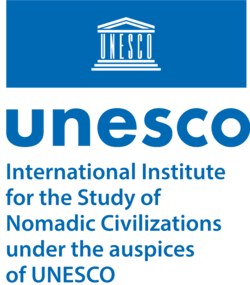Nomads and Sustainable Development
Overview
This program studies how climate change, pasture and water supply, livelihoods, education, health services, and inequality affect rural and urban-settled nomads at the regional level.
UNESCO Sustainable Development Policy
The social dimensions of the 2030 Agenda and the targets on social inclusion, eradication of extreme poverty, reduction of inequalities, inclusive policies for cities, as well as inclusive and participatory decision-making resonate with UNESCO’s mandate to support Member States. The overlapping goals between the Nomads and Sustainable Development program and the UN’s Sustainable Development Goals are to decrease poverty, promote decent work and economic growth, secure housing, reduce inequality, mitigate the effects of climate change, and protect terrestrial ecosystems.
Sustainable Development Vision of Mongolia-2030
The program will also support the following principles of Mongolia’s Sustainable Concept-2030.
- To develop the livestock sector in the international market jointly within the framework of supporting the agricultural sector, (SDC 2.1.1.)
- To support the entrepreneurship of herder households, khot ails, and small and medium farmers. To use herder technology, and increase the number of farmers to 75 households between 2021 and 2025 in accordance with modern technology and energy supply objectives. To establish a system for providing financial support and supply of finished products to the market, (SDC 2.1.4)
- To protect at least 60% of water resources and river sources, (SDC 2.3.1)
- To increase the productivity of the population provided with safe drinking water to 85% and provide 50% improved sanitation facilities for the population, (SDC 2.3.2)
- To mitigate the effects of land degradation and climate change. (SDC 2.3.2)
Past projects
- Traditional Knowledge of Nomads for Adaptation to Climate Change (2017-2019): a survey was conducted in 4 soums of the Dundgovi and Gobi-Altai aimags in order to record ecological changes. The project distributed handouts to 6 soums in 2 aimags, which were developed by experienced herders, the Institute of Geo-Ecology of the Mongolian Academy of Sciences, and the Institute of Biology. It was an important study that served as a platform for disseminating the real experiences of herders and exchanging views.
- Nomadic civilization as a factor in the sustainable development of the region
(2014-2016): a MFTS-funded project.
- Experience, Development Problems and Crossing (2012-2014): the project conducted archaeological mapping of old sites and the city ruins of ancient nomadic urban cultures, resulting in the publication “An atlas of sites and cities of ancient Central Asian nomads”.
- Traditional knowledge for adaptation to climate change: promoting traditional practices to respond to land degradation and desertification in Mongolia (2010-2012): an UNESCO LINKS (Local and Indigenous Knowledge Systems) Program funded project aimed at documenting the traditional knowledge of Mongolian nomads for adaptation to climate change.
- Issues in the development of nomadic culture and civilizations of Mongolians in the XXI century (2000-2002)
- Urbanization in Nomadic Civilizations: Historical Experiences, Disabilities, and Solutions: an ethnographic and anthropological study to evaluate the urbanization process among nomadic herders of modern Mongolia, determine the main reasons of rural migration, and formulate a methodology for the preservation of traditional culture in the era of globalization.
- Coherence of traditional methods and rituals of Mongolian nomadic pasture rehabilitation
